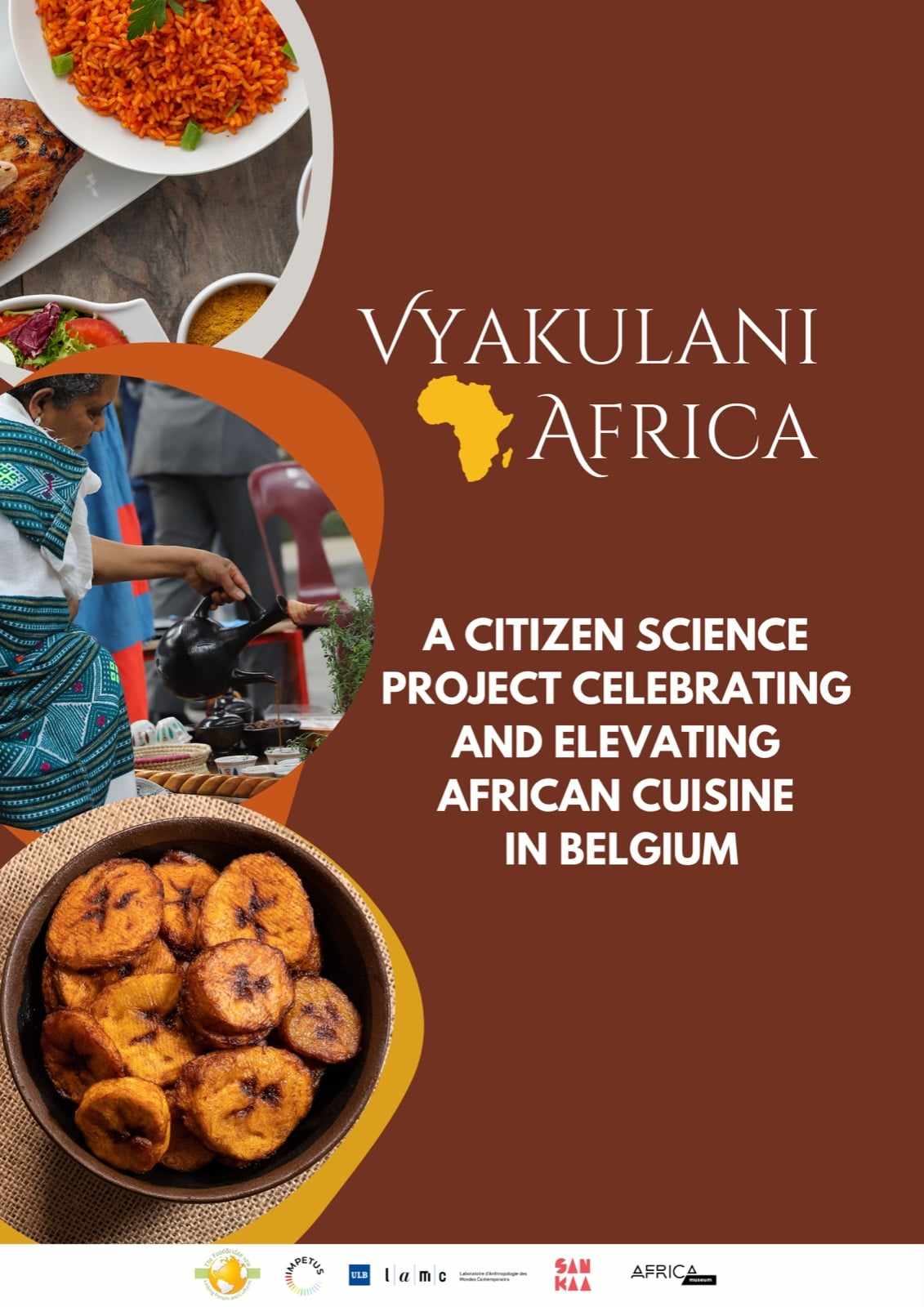Projects
 This project is an initiative of the FoodBridge vzw in partnership with the Africa Museum,Diaspofood Research Group ULB and Sankaa vzw. Funded by the EU Impetus Accelerator Program. The objectives of this project are:
This project is an initiative of the FoodBridge vzw in partnership with the Africa Museum,Diaspofood Research Group ULB and Sankaa vzw. Funded by the EU Impetus Accelerator Program. The objectives of this project are:
(i) to highlight the importance and potential of African food systems to the larger public
(ii) to motivate Africans residing in Europe to reappropriate their foodways
(iii) to facilitate the dissemination of healthy African foods to the wider public.
Using citizen science research methodology, people participated in many stages of the scientific process, from the design of the research question,to data collection and volunteer mapping, data interpretation and analysis, to publication and dissemination of results
The main research questions for African diasporas are -What are the challenges of African food culture in Belgium? What aspects of theAfrican food culture needs to be passed on to the next generation? What are the two questions you wish you had asked your grand parents about their food culture and tradition? Can you think of a cherished African food culture that has been lost due to the influence of western culture? Can you name three African superfoods from your food culture?
We also developed a set of questions for non Africans because their inputs are also important for the research-
Have you ever eaten African food? If yes, what did you eat and where? Do you think African cuisine in Belgium has the same visibility as cuisines from other continents? In one word what was your initial reaction or impression of African cuisine? What challenges have you encountered when trying to understand or eat African food? How likely are you to try African recipes at home or to recommend African food to others in Belgium?
The project will end in January 2025 and we will share the results of the research later in the year.
Food is an important aspect of all cultures in the world. This project is a collaboration between The Food Bridge vzw and the BigPicnic project of the botanic garden Meise Belgium. This is in support of the Bigpicnic's focus on an intercultural expedition on food and food preferences. For example what is the prefered food of the average Nigerian? What crops play a major role in the Indian, Nicaraguan or Ugandan cuisine? How can research on these crops contribute to more food security?
Thus we plan special visits to the Botanic Garden with groups from different nationalities, During these visits, the participants share their knowledge and the relevance of the plants in their culture. These visits show the commonalities and differences in the food cultures with regards to the use of the food crops. We also aim to link the researchers and gardeners that work at the garden to ordinary people who can benefit from their knowledge.
As part of this project, we work hard to put a human face to the research of the experts, thus highlighting further the relevance of their work. We have also started a project on food memories, which led to the production of a short film. We intend to expand this to include different nationalities and later have an exhibition of the films. If you or your organization want to be part of this project, please contact This email address is being protected from spambots. You need JavaScript enabled to view it.
African Diaspora Projects Initiative
The aim of this initiative is to give members of the African Diaspora with social entrepreneurial ideas and projects, an opportunity to pitch these to a team of experts from Entrepreneurs for Entrepreneurs vzw.
The African Entrepreneurs get 7 minutes in the first phase to present their ideas or projects. Each participant during registration indicates: the name of the project, the sector of activity and where in Africa this project will be based. We also request a one page synopsis of the project, with information clearly stating the expected social impact of the project in Africa, the viability and potential for profit in 3 years and lastly, the required financial investment.
Selected projects could get investment of between 5,000€ and 100,000€. Although the focus is on agro-food projects, other projects in affiliated sectors such as transportation, waste management, energy, technology, etc. Are also covered in this initiative. The next session will be in January with a focus on innovative and sustainable energy.
